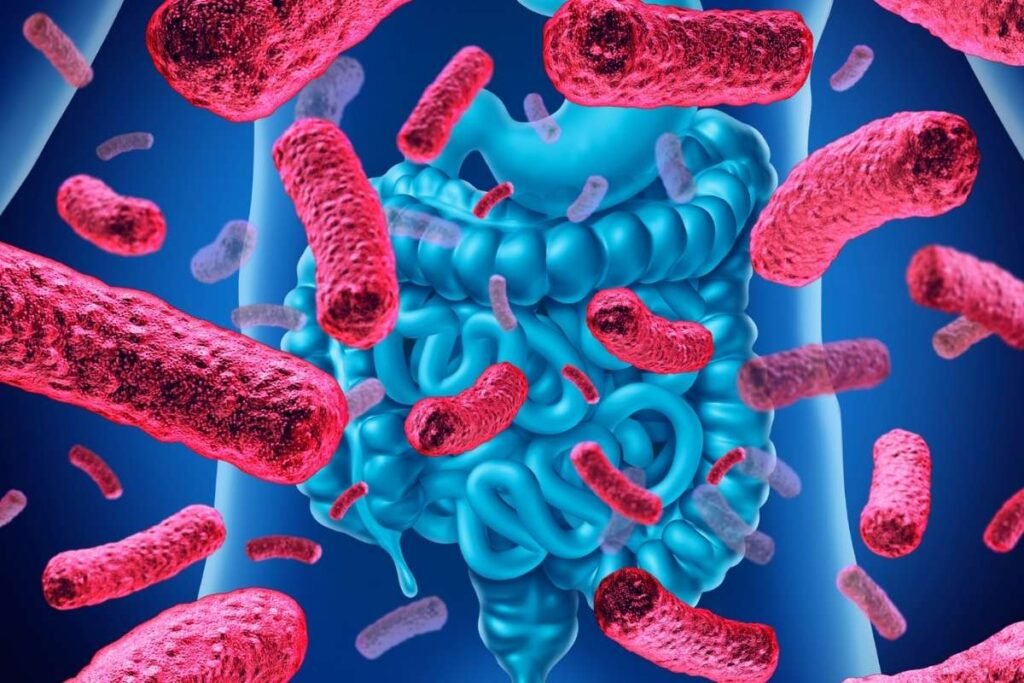There are many living microorganisms present in your gut. They play an important role in maintaining your gut health. These beneficial microbes are often referred to as probiotics. They help balance the stomach’s ecosystem and aid in digestion.
A diet that has good bacteria for stomach is important. An imbalance in gut bacteria can lead to problems like bloating, indigestion, and weakened immunity. Supporting the growth of these helpful bacteria is essential. They can improve nutrient absorption, enhance gut health, and boost mental wellness. In this blog, we are going to look at some of these bacteria and how they can benefit your health. But first, let us learn a bit more about probiotics.
What are Probiotics and What do they Do?
Probiotics are live beneficial bacteria and yeasts that support a healthy gut. They are naturally found in foods like yogurt, kefir, sauerkraut, and supplements. Probiotics help strengthen the immune system and prevent the growth of harmful bacteria.
Probiotics can help alleviate symptoms of digestive disorders, including irritable bowel syndrome, diarrhea, and bloating. According to a study published in the European Society for Primary Care Gastroenterology, more than 70% patients agreed that probiotics helped reduce their IBS symptoms. They also have the additional benefit of improving mental health. Probiotics show why they are the good bacteria for stomach. What exactly are these bacteria, though? Let us find out.
Here are the 10 Good Bacteria for Stomach
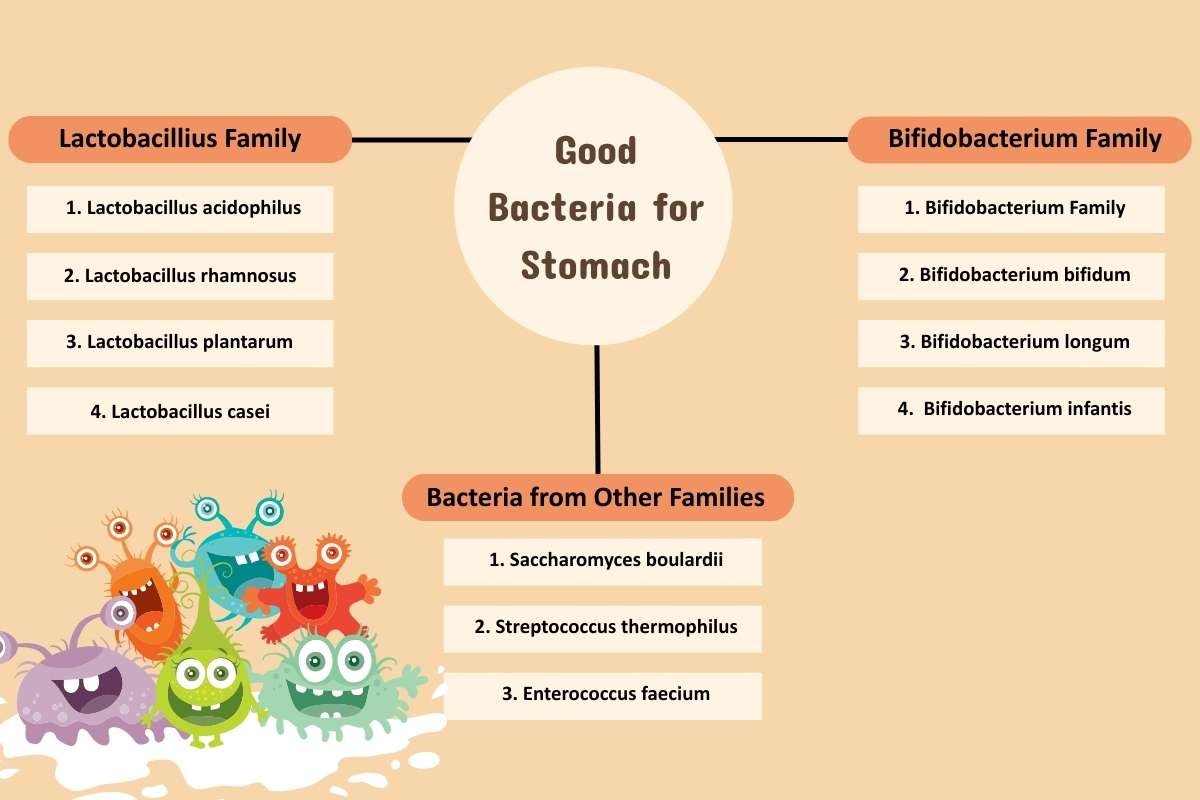
Most of the healthy bacteria that the body requires come from two main bacterial families. They are known as Lactobacillus and Bifidobacterium.
| Good Bacteria for Stomach | |
| Lactobacillius Family | Bifidobacterium Family |
| Lactobacillus acidophilus | Bifidobacterium bifidum |
| Lactobacillus rhamnosus | Bifidobacterium longum |
| Lactobacillus plantarum | Bifidobacterium infantis |
| Lactobacillus casei | |
| Bacteria from Other Families | |
| Saccharomyces boulardii | |
| Streptococcus thermophilus | |
| Enterococcus faecium | |
Lactobacillus Bacteria
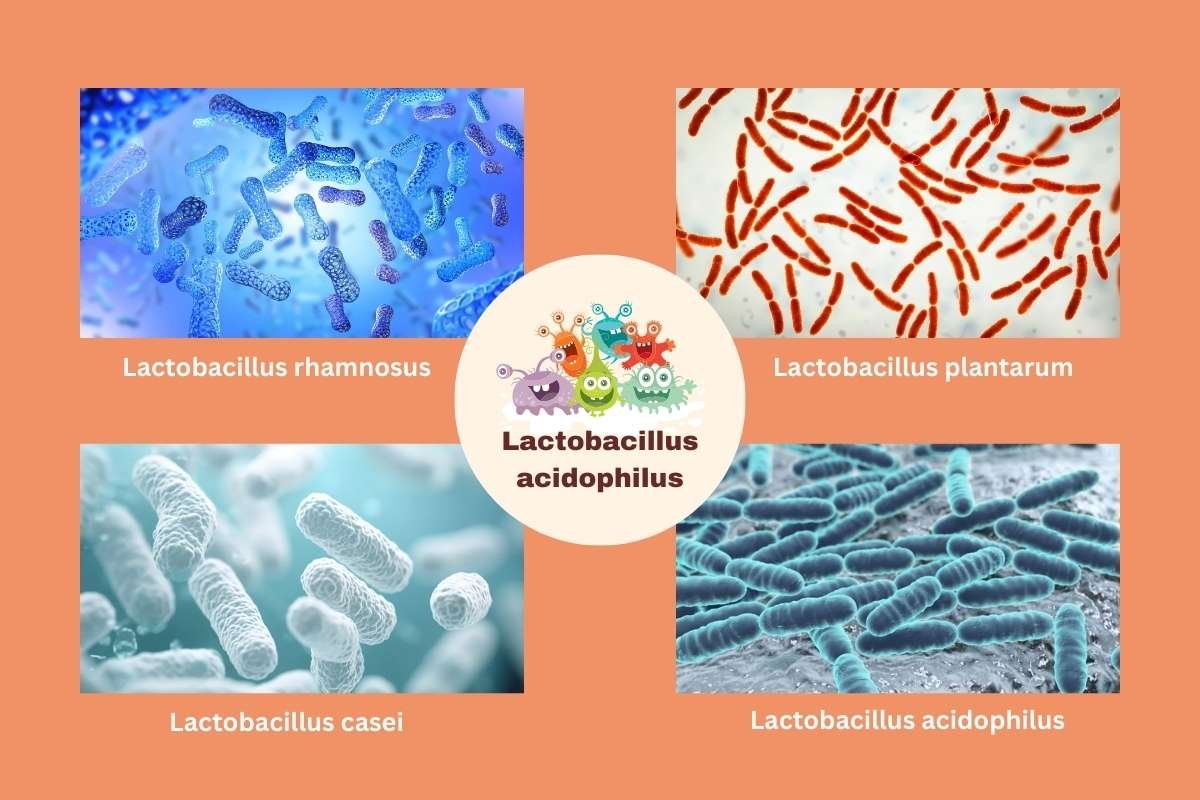
The Lactobacillus family consists of beneficial bacteria that are present in the human gut, mouth, and vaginal microbiome. They are known for producing lactic acid during fermentation. It helps maintain an acidic environment that prevents harmful bacteria from thriving. These bacteria support digestion by breaking down carbohydrates and assisting in nutrient absorption. They also play a vital role in protecting the intestinal lining. Their presence helps balance the gut flora. The Lactobacillus family consists of four beneficial bacteria:
1. Lactobacillus acidophilus
This is a really good bacteria for stomach. They are commonly found in fermented dairy products and certain cheeses. It helps break down lactose, improving digestion and nutrient absorption. This bacterium supports immune function and balances gut flora. It prevents harmful bacteria from thriving. It’s widely used in probiotic supplements and fortified food.
2. Lactobacillus rhamnosus
Lactobacillus rhamnosus is naturally present in the intestines. It is often added to supplements and fermented foods. It strengthens the gut barrier and helps prevent infections by inhibiting pathogenic bacteria. It is particularly effective in reducing diarrhea and alleviating symptoms of irritable bowel syndrome (IBS). This bacterium is included in powders, capsules, and dairy products.
3. Lactobacillus plantarum
Lactobacillus plantarum is found in fermented vegetables like sauerkraut, kimchi, and pickles. It is found in yogurt as well. It reduces bloating and inflammation while improving nutrient absorption. This strain maintains the gut’s microbial balance and is a good bacteria for stomach. It’s often used in probiotic formulations to boost immune response and enhance metabolic processes.
4. Lactobacillus casei
Lactobacillus casei improves digestion and helps prevent constipation. Additionally, it enhances the gut’s protective barrier. It’s commonly included in dietary supplements for individuals with digestive disorders.
Bifidobacterium
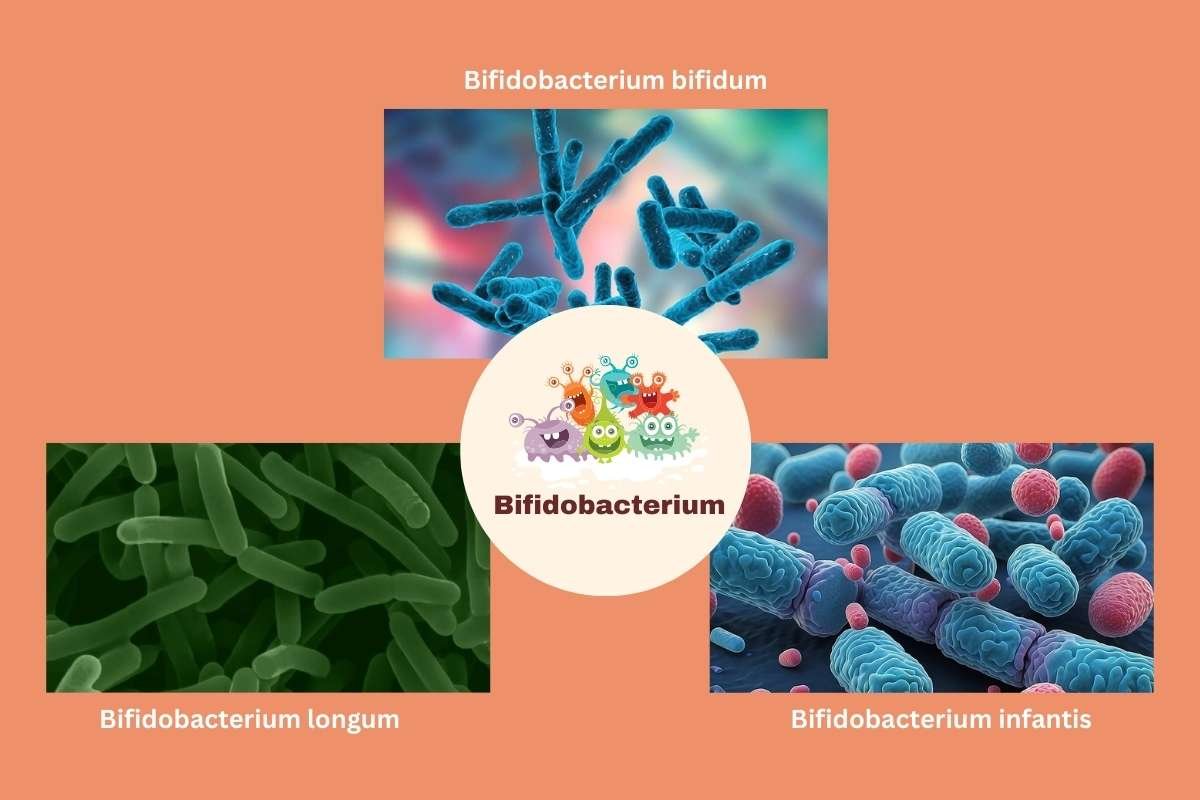
There is another set of good bacteria for stomach. It is known as Bifidobacterium. This family is usually found in the large intestine. These bacteria help break down complex carbohydrates, fibers, and sugars that the body cannot digest on its own. According to a study published in the International Journal of Molecular Sciences, this produces short-chain fatty acids that support gut health. They also prevent harmful bacteria from colonizing the gut. Bifidobacteria contribute to the development of a healthy immune system. These bacteria are particularly abundant in breastfed infants. The most common bacteria in this family are:
5. Bifidobacterium bifidum
Bifidobacterium bifidum is one of the earliest colonizers in the human gut. It is found in breast milk, dairy products, and fermented foods. It helps digest complex carbohydrates and fiber. It also promotes a healthy intestinal environment and prevents harmful bacteria from multiplying. It’s widely used in probiotics to enhance immune function in both children and adults
6. Bifidobacterium longum
Another good bacteria for stomach is Bifidobacterium longum. It naturally resides in the colon. It is present in dairy products, supplements, and functional foods. Bifidobacterium longum assists in breaking down carbohydrates, strengthening the gut lining, and reducing inflammation. It also helps modulate the immune system and maintain a balanced microbiome. This strain is particularly beneficial for individuals with digestive disturbances. It can also improve tolerance to stress.
7. Bifidobacterium infantis
Bifidobacterium infantis is a key bacterium found in the intestines of breastfed infants. It plays a critical role in early digestive development. It aids in regulating bowel movements and supporting nutrient absorption. It is often included in infant formulas. It helps soothe colic, manage IBS symptoms, and improve gut barrier function.
Other Bacteria
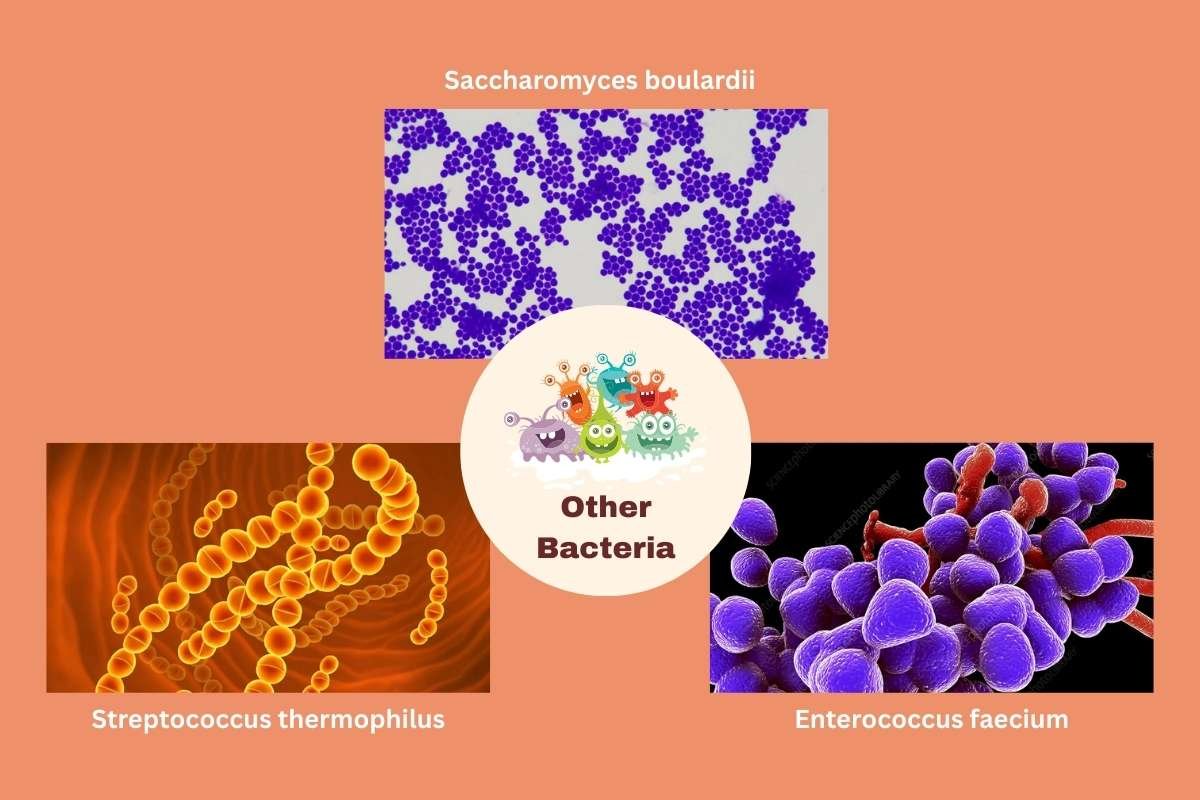
Apart from the above two families, there are also other good bacteria for stomach. Some of these include:
8. Saccharomyces boulardii
Saccharomyces boulardii is a beneficial yeast. It is found in probiotic supplements rather than in foods. It helps prevent and treat diarrhea, including antibiotic-associated diarrhea. It is used widely in therapeutic formulations. This bacterium is effective in restoring microbiome balance. It is most effective after gastrointestinal infections or prolonged antibiotic use.
9. Streptococcus thermophilus
Streptococcus thermophilus is used in yogurt, cheese, and other fermented dairy products. It produces lactic acid, which lowers gut pH and inhibits harmful bacteria growth. It aids in lactose digestion, making dairy products more tolerable for those with lactose sensitivity. Additionally, it supports gut health by balancing the microbial environment. It is often paired with other probiotics for enhanced benefits.
10. Enterococcus faecium
Enterococcus faecium is a lactic acid bacterium. It is found in fermented foods and used in certain probiotic supplements. It helps maintain gut microbial balance, supports immune health, and inhibits pathogenic bacteria. It is primarily used in medical-grade supplements for specific digestive conditions. However, it is beneficial in small doses as well. Careful formulations ensure safety while helping individuals with compromised gut health.
Conclusion:
Good bacteria for the stomach are essential allies in maintaining digestive health. Incorporating probiotic-rich foods or supplements into your daily routine can promote long-term health. A healthy gut doesn’t just aid digestion, but it also impacts energy levels, mood, and immunity. Prioritizing gut health is an investment in your well-being, helping you feel healthier, stronger, and more resilient every day.
FAQ
1. Can an imbalance of gut bacteria cause stomach problems?
A. Yes. When harmful bacteria outnumber good bacteria, it leads to a condition called gut dysbiosis. This imbalance can cause digestive problems such as bloating, diarrhea, constipation, acid reflux, and even weaken the immune system over time.
2. How can I naturally increase good bacteria in my stomach?
A. You can support good bacteria growth through a diet rich in fiber, fermented foods, and probiotics supplements.
3. Can probiotics help with stomach issues like IBS or bloating?
A. Probiotics may relieve symptoms of Irritable Bowel Syndrome (IBS), bloating, and constipation by restoring balance in gut bacteria. However, effectiveness depends on the specific probiotic strain and consistency of intake.
Also Read :- Feeling Off? These 20 Easy-on-the-Stomach Recipes Are Just What You Need

